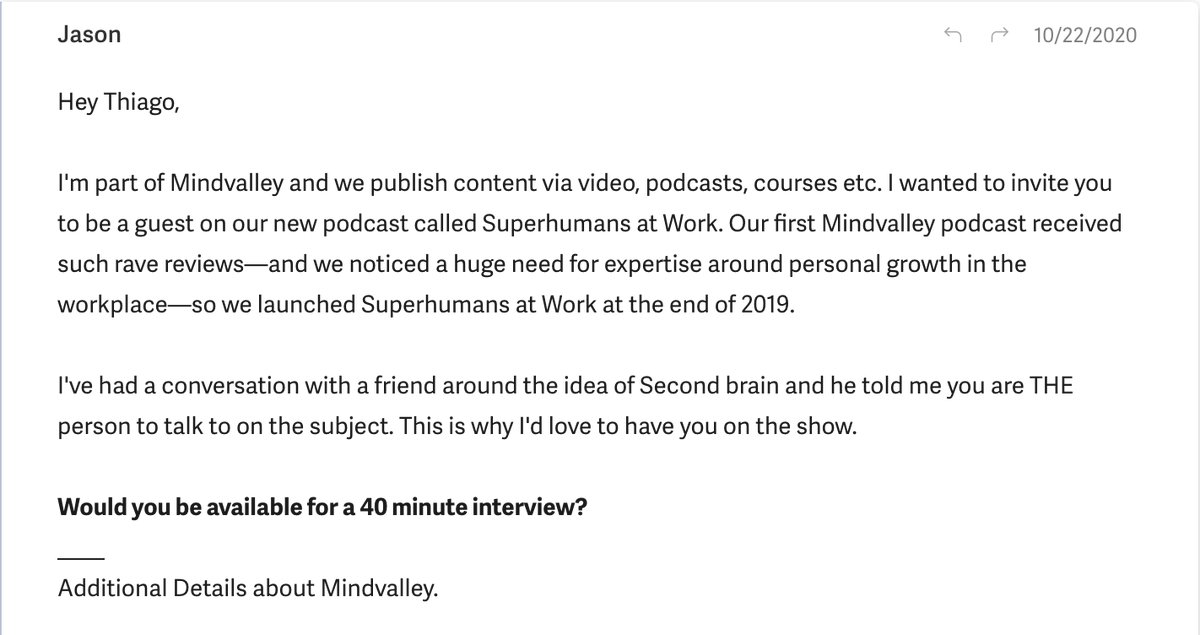
1/ Here's what's happening in the online education market broadly, and cohort-based courses specifically:
We're leaving the early stage of solo creators managing everything from audience growth to marketing/sales to creating the content to teaching all by themselves
We're leaving the early stage of solo creators managing everything from audience growth to marketing/sales to creating the content to teaching all by themselves
2/ There are far too many roles to play and hats to wear for one person to do it all themselves. Especially as competition heats up and online courses become full-fledged businesses
We're going to see the roles specializing more and more, to be fulfilled by different people
We're going to see the roles specializing more and more, to be fulfilled by different people
3/ The first roles to split are 1) Course Instructor and 2) Course Marketer
These are the two most important roles, and also the two that are hardest to fit into one person. It's exceedingly difficult to handle both the creation and sales of an educational product
These are the two most important roles, and also the two that are hardest to fit into one person. It's exceedingly difficult to handle both the creation and sales of an educational product
4/ Very clear example in this interview with @CoachGlitter: smartpassiveincome.com/podcasts/coach…
She created "accountability groups" around courses created by other people, and sold them as an affiliate. So she made money without having to create her own
She created "accountability groups" around courses created by other people, and sold them as an affiliate. So she made money without having to create her own
5/ This division of labor is powerful because it allows each person to do what they do best: instructors can teach and coach students, marketers can build sales funnels and grow email lists
Both will benefit, it's just the models of how they collaborate that need working out
Both will benefit, it's just the models of how they collaborate that need working out
6/ So far the main model has been affiliate commission, but those are too arms'-length and transactional. The real value comes from very close, long-term alliances where the marketer becomes an integral part of the business
7/ Formal partnerships are too far on the other side of the spectrum. We need something in between, like a course marketer that partners with 3-4 CBCs and runs launches for them back to back, learning what works as rapidly as possible
8/ This is in stark contrast to course instructors, who likely only run 2-3 cohorts per year and can never give marketing their full attention. This limits how much they can invest in marketing since it's only one small part of their business
9/ Other examples of how the roles of online course delivery are splitting & specializing
@beondeck is betting that course content and instructors are a commodity in the long term, and is going all in on the parts they can control: user acquisition, community, & cohort delivery
@beondeck is betting that course content and instructors are a commodity in the long term, and is going all in on the parts they can control: user acquisition, community, & cohort delivery
10/ @ljin18's course Building for the Creator Economy notably is for anyone *servicing* the Creator Economy, not just people who want to be creators themselves 

11/ This is smart because the "pickaxes and shovels" businesses that serve the creator economy will ultimately be much bigger than the creator economy itself
@convertkit is creator-centric, but can grow far larger than the niche of solo creators. That is just their home base
@convertkit is creator-centric, but can grow far larger than the niche of solo creators. That is just their home base
12/ There is an entire class of marketers that is arising specifically to serve premium-branded educational products
It's a challenge because they have to unlearn a lot of the scammy, hypey, and even unethical marketing practices used by previous generations of online products
It's a challenge because they have to unlearn a lot of the scammy, hypey, and even unethical marketing practices used by previous generations of online products
13/ Selling transformational educational programs requires a completely different approach, such as the methods being pioneered by @BillyBroas: Bridge of Transformation, 5 Lightbulbs, Chain of Beliefs, Trusted Advisor, Parable-Based marketing, etc.
14/ I'd go so far as to say that the next big trend in marketing after "content marketing" is going to be "educational marketing." The clear next step after giving ppl valuable content, is to teach and coach and provide guidance on how to USE that content
15/ This emerging style of educational marketing is so powerful, that companies will shift the entire business toward education to be able to take advantage of it. The same way that every company became a media company, next they will all become education companies
• • •
Missing some Tweet in this thread? You can try to
force a refresh



